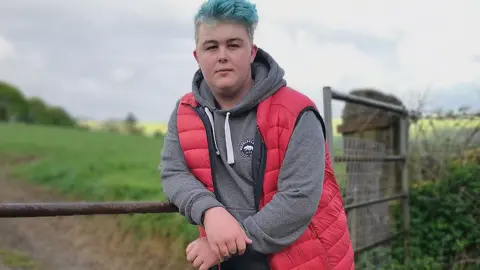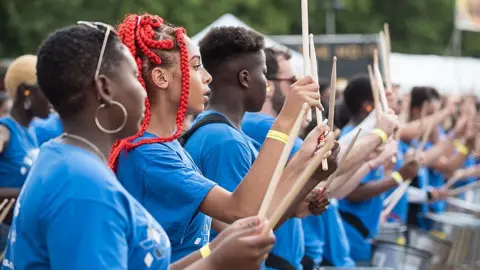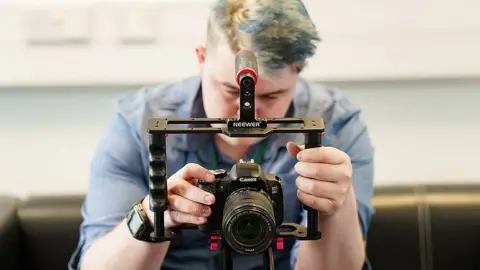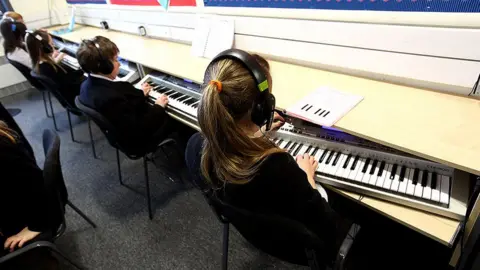Grime over Mozart? Better music lessons 'changed my life'
 Youth Music
Youth MusicA new study has shown that changing how music is taught in schools could boost attendance for struggling students.
In the study, 974 pupils aged between 11 and 15 took part in a new project to teach electronic, grime and hip hop music in schools instead of classical.
Pupils who'd been at risk of being expelled from school when the study began had attendance records of more than 95% by its end.
Some people already excluded from school went back into education.
They studied artists like Stormzy instead of Mozart, got involved with the music industry and other local music-making projects, in partnership with their secondary schools.
There were also links to people taking part performing higher than expectation in subjects such as Maths and English as well as music during the study, which was commissioned by Youth Music and the research carried out by Birmingham City University.
 Gar Powell-Evans
Gar Powell-Evans163 of the pupils who took part had their attendance and grades monitored over the four-year project, called Exchanging Notes, across the UK.
It made a huge difference to people like 17-year-old Kori Dolby, from Cheshire, who was one of the pupils who got involved.
'It all clicked and I wanted to succeed'
"It has changed my life forever," he tells Radio 1 Newsbeat.
"School life wasn't as great as I wanted it to be.
"I was happy until year nine, when a lot of things went downhill. I had complications at home and started struggling a bit at school."
 Youth Music
Youth MusicHe says he had lost focus and started skipping lessons before getting involved with Exchanging Notes.
"The first moment I laid my hands on a keyboard - that's when it clicked. I wanted to succeed," Kori says.
"It's not only about making music, it's about connecting with people, pushing yourself out of your comfort zone and doing something great."
Kori says the music education he was given, which included work with a recording studio in Derby, also helped him focus on other subjects such as media studies.
He's now studying at college and wants to be a cameraman when he's older - if a music career doesn't work out, of course.
"I don't think I'd be where I am today right now without it," he says.
There's a lack of music education in state schools
Earlier this year, a study by the British Recorded Music Industry (BPI) found that music provision in state schools had dropped by 21% in the past five years.
In that same time, it rose by 7% in private schools.
 Getty Images
Getty ImagesBut the government say they are currently working with music organisations to "refresh" how music is taught in schools.
"We want all pupils to have the opportunity to study music at school - that's why it is compulsory in the National Curriculum from the age of 5 up to 14," a spokesperson for the Department of Education tells Newsbeat.
"We are putting more money into arts education programmes than any subject other than PE - nearly half a billion pounds to fund a range of music and cultural programmes between 2016 and 2020."
Music in school doesn't represent pupils' "lives and passion"
Now, Youth Music is calling for an "urgent" transformation of music education in schools to make it more inclusive and more productive for pupils.
"Despite school being the one place where everyone should be able to access music, we've consistently heard how it doesn't reflect their existing musical lives and passion," says Matt Griffiths, CEO of Youth Music.
"And their access is being restricted because school music departments are disappearing by the day.
"Our Exchanging Notes research has cemented our view that music in schools has the power to help young people with some of the big issues facing them today - mental health, isolation, and social inequality.
"But only if it is re-imagined to become more relevant and inclusive of all young people."


